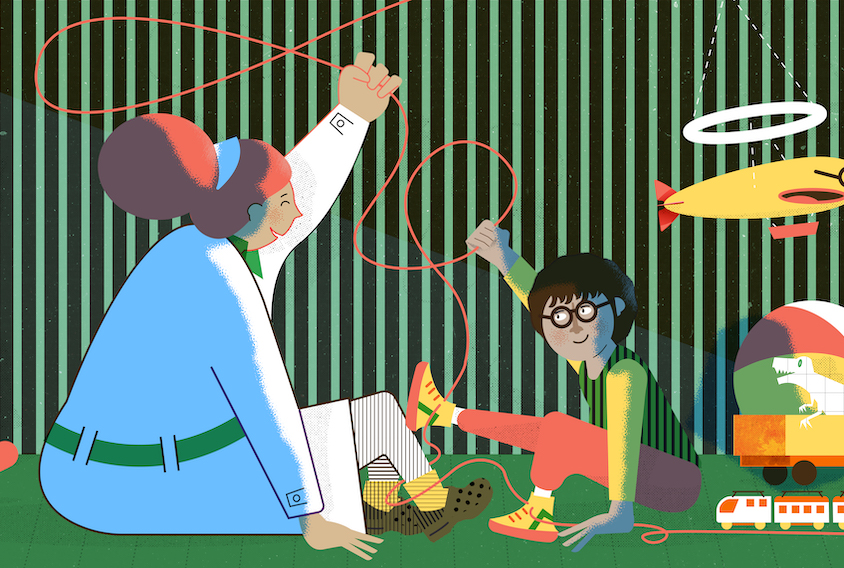Casey Zampella is a scientist at the Center for Autism Research at Children’s Hospital of Philadelphia in Pennsylvania. Her research focuses on quantifying movement differences in autism and their effects on social communication and reciprocity.

Casey Zampella
Scientist
Center for Autism Research, Children’s Hospital of Philadelphia
From this contributor
Motor skills in autism: A missed opportunity
Motor differences are more relevant than has historically been appreciated for understanding, assessing and supporting people on the spectrum.

Motor skills in autism: A missed opportunity
Explore more from The Transmitter
Neuro’s ark: Spying on the secret sensory world of ticks
Carola Städele, a self-proclaimed “tick magnet,” studies the arachnids’ sensory neurobiology—in other words, how these tiny parasites zero in on their next meal.

Neuro’s ark: Spying on the secret sensory world of ticks
Carola Städele, a self-proclaimed “tick magnet,” studies the arachnids’ sensory neurobiology—in other words, how these tiny parasites zero in on their next meal.
Autism in old age, and more
Here is a roundup of autism-related news and research spotted around the web for the week of 2 March.

Autism in old age, and more
Here is a roundup of autism-related news and research spotted around the web for the week of 2 March.
Lack of reviewers threatens robustness of neuroscience literature
Simple math suggests that small groups of scientists can significantly bias peer review.

Lack of reviewers threatens robustness of neuroscience literature
Simple math suggests that small groups of scientists can significantly bias peer review.